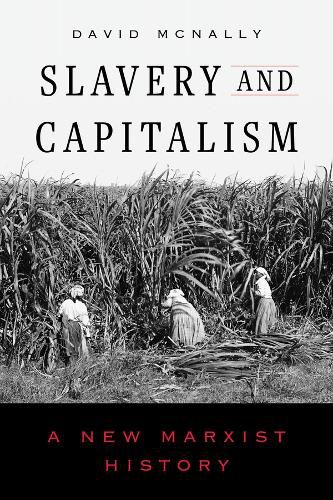Readings Newsletter
Become a Readings Member to make your shopping experience even easier.
Sign in or sign up for free!
You’re not far away from qualifying for FREE standard shipping within Australia
You’ve qualified for FREE standard shipping within Australia
The cart is loading…






The first systematic Marxist account of the capitalist character of Atlantic slavery.
Karl Marx's writings on enslavement and labor have fallen out of favor among historians, but David McNally injects new life into them. Slavery and Capitalism gives the first systematic Marxist account of the capitalist character of Atlantic slavery-using colonial travel literature, planter records and diaries, and slave narratives-to support the provocative claim for enslaved labor in the plantation system as capitalist commodity production.
Weaving together history, political economy, and radical abolitionism, McNally demonstrates that plantation slaves formed a modern working class. Unlike those scholars who insist that enslaved people were too sensible to set their sights on liberty, he highlights the self-activity of enslaved people fighting for their freedom and reframes their resistance as labor struggles over production and reproduction, with significant implications for US and Atlantic history and for understanding the roots of racial capitalism.
$9.00 standard shipping within Australia
FREE standard shipping within Australia for orders over $100.00
Express & International shipping calculated at checkout
The first systematic Marxist account of the capitalist character of Atlantic slavery.
Karl Marx's writings on enslavement and labor have fallen out of favor among historians, but David McNally injects new life into them. Slavery and Capitalism gives the first systematic Marxist account of the capitalist character of Atlantic slavery-using colonial travel literature, planter records and diaries, and slave narratives-to support the provocative claim for enslaved labor in the plantation system as capitalist commodity production.
Weaving together history, political economy, and radical abolitionism, McNally demonstrates that plantation slaves formed a modern working class. Unlike those scholars who insist that enslaved people were too sensible to set their sights on liberty, he highlights the self-activity of enslaved people fighting for their freedom and reframes their resistance as labor struggles over production and reproduction, with significant implications for US and Atlantic history and for understanding the roots of racial capitalism.